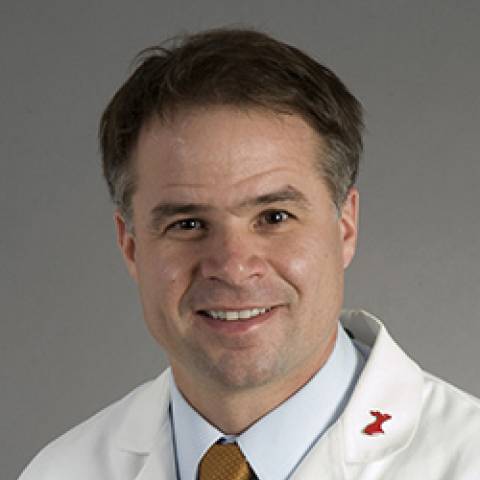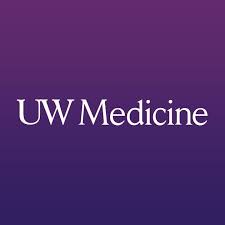

Leadership in hypertrophic cardiomyopathy care, research
Treating patients with hypertrophic cardiomyopathy (HCM) wasn’t always on the radar for David S. Owens, MD, director of the UW Medicine Cardiovascular Genetics and Hypertrophic Cardiomyopathy clinics.
But a cardiology research fellowship with the National Institutes of Health sparked his interest. During that time, the physiology of HCM and the genetic components behind the disease enthralled him. He also realized that patients with the condition needed better access to targeted care.
“Hypertrophic cardiomyopathy is challenging. It’s not rare, but it’s uncommon enough. Most general cardiologists see patients with hypertrophic cardiomyopathy but not often enough to become experts in providing care,” he says. “I recognized this was a specialized enough disease requiring specialized treatments, and it really deserved a center where individuals can work together to provide the care patients need.”
And that philosophy led UW Medicine to become a national leader in HCM treatment and research.
A three-pronged approach to care
HCM is the most common inherited heart disorder, affecting around one in 500 people. Left untreated, it can lead to heart failure, arrhythmias and sudden cardiac death.
Consequently, Owens says, a treatment strategy needs to focus on the specific characteristics of the disease. So, the experts at UW Medicine treat HCM using a three-pronged approach.
- Symptom management: HCM symptoms can be tricky. The most common signs, shortness of breath and chest pain or pressure with exercise, can frequently mimic symptoms of other conditions. Paying attention to and addressing these symptoms is vital.
- Assessment of sudden death risk: Patients with HCM have an increased risk of sudden death. While it isn’t as likely as once believed, Owens says all patients with HCM should undergo a risk stratification to assess their risk for abnormal heart rhythms, which can lead to death.
- Family-based screening: Because HCM is a genetic disease, clinicians should proactively screen other family members once they identify a patient with the condition.
Leaders in HCM care
Although the condition is uncommon, Owens says, the team at UW Medicine has extensive experience in treating these individuals.
“I’ve seen well over 1,000 patients with hypertrophic cardiomyopathy. That compares to the handful of cases many individual cardiologists have seen,” he notes. “Not everyone has that experience to know the nuances of the condition and its therapies.”
He says that to deliver the highest quality care, the UW Medicine team makes getting treatment as convenient as possible. For example, the staff coordinates multiple tests on a single day for patients traveling long distances. They also offer telemedicine services to patients who need to — and can — receive care remotely.
“As much as we can, we want to make our offices a one-stop-shop for patients,” Owens says.
Leaders in multidisciplinary services
In addition to providing the highest quality care to patients, UW Medicine is also a leader in providing a broad spectrum of services. Treatment doesn’t stop with specific cardiology services. Instead, the multidisciplinary team at UW Medicine provides several wraparound services to help providers deliver more comprehensive care.
This team brings together experts to address every patient’s needs simultaneously. Their expertise includes the following areas.
- Genetics: During weekly conferences, Owens and his colleagues discuss patient care issues, present cases and talk about genetic results with a team of UW Medicine geneticists.
- Electrophysiology: With this team, cardiologists also discuss the best way to manage each patient’s unique case, as well as their risks of sudden death. Providers may recommend defibrillators as an option for patients with high risk, he says.
- Procedures: The program also works with several providers trained to offer specific surgical and nonsurgical procedures. These providers have expertise in septal ablation, surgical myectomy and other cardiovascular procedures.
Owens says collaborating closely with the team and delivering these wraparound services benefit their patients significantly.
“The data suggests having these specialized centers improves outcomes from the procedural standpoint,” he says. “By bringing our team together, we have all the expertise to deliver the highest quality care.”
Thanks to this level of coordination, Owens says, UW Medicine has applied for a Center of Excellence designation from the Hypertrophic Cardiomyopathy Association. The recognition would come by the end of 2023.
Leaders in research
In addition to trailblazing HCM clinical care, UW Medicine faculty also lead cutting-edge HCM research.
New HCM medications have emerged in recent years. And, Owens notes, UW Medicine faculty have been at the forefront of testing these therapies in patients with HCM. For example, our investigators have participated in the EXPLORER and SEQUOIA trials. The EXPLORER trial demonstrated that the medication mavacamten improves patients’ exercise capacity. And the SEQUOIA trial is analyzing if the drug aficamten can do the same thing while also improving heart failure symptoms.
As a next step, our researchers will participate in the upcoming ODYSSEY trial to test mavacamten’s efficacy in patients with HCM.
Ultimately, he says, contributing to these trials will strengthen UW Medicine’s ability to provide the best care available for patients with HCM in the future.
“The expansion of these medications and trying to figure out who benefits from them the most are going to be crucially important,” Owens says. “Hopefully, we’ll get a better handle on that over the next five to 10 years.”
Written by Whitney Palmer.